A Comparison Between Fantom Consensus And Other Major Consensus Mechanisms
In any centralized system, like a collection of regular information about students results in a university system, a central supervisor is granted the opportunity to access, maintain and update the information about those students result. That central supervisor is given the sole responsibility of making any updates like adding or deleting or updating of students results.
Public blockchains is known to be fully decentralized and cannot be controlled by any single authority like the way the students results is controlled by that central supervisor. Public blockchains is also regarded as a permissionless blockchain as it involves contributions from anyone on the blockchain network.
The status of the blockchain is one that changes dynamically and there is need for a fully efficient, functional, fair, reliable and highly secured mechanism that will oversee the activities on the those publicly shared ledger to ensure that all the transactions that are occurring on the blockchain network are authentic and that a consensus is agreed upon by all participants based on the status of the ledger. The mechanism in charge of all this important task is the consensus mechanism, and it is a set of rules used in the decision making by the various participants of the blockchain.
There are different consensus mechanism and they all operate on different principles.
The most popular cryptocurrency network like Bitcoin and Litecoin uses the Proof of Work (POW) consensus algorithm, which offers a network that is secured and strong enough to ensure that there is agreement between all nodes before new transactions can be added to the blockchain. However, the issue with this is that the mining mechanism requires extensive energy consumption and longer processing time to keep the blockchain running.
Unlike Proof of Work, Proof of Stake (POS) is dependent on the amount of coin staked by a participant. The higher the amount of coin staked by a participant, the more likely the participant will be able to add a new block of the transaction to the blockchain. This is the consensus algorithm used by blockchain projects like Ethereum. However, this particular consensus algorithm also has its own disadvantage, as it promotes cryptocurrency coin saving instead of spending.
We also have consensus algorithm like Tendermint pBFT which is used by the Cosmos Network. Tendermint happens to be one of the very first consensus algorithm to make use of pBFT in blockchain, and they uses peer-to-peer gossip protocol among nodes. The three stages involves in Tendermint are propose, prevote and pre-commit. But this also has some cons as it is centralized and permissioned.
Despite the different consensus mechanism adopted by various blockchain projects, the blockchain technology still face different fundamental issues like the problem of scalability and lack of real-time transaction settlement. As a matter of fact, the improved consensus algorithm practiced by some blockchain implementation like Ethereum and Bitcoin still did not make them synchronize more than one block at a time. This leads to slow confirmation times, which is popularly recognized to be one of the biggest factors that has been limiting the global implementation and application of blockchain technology across many industries.
In order to provide solutions to this reoccurring issues, A new DAG-based Smart Contract platform adopts a new protocol known as "Lachesis Protocol", and that Platform is "Fantom.
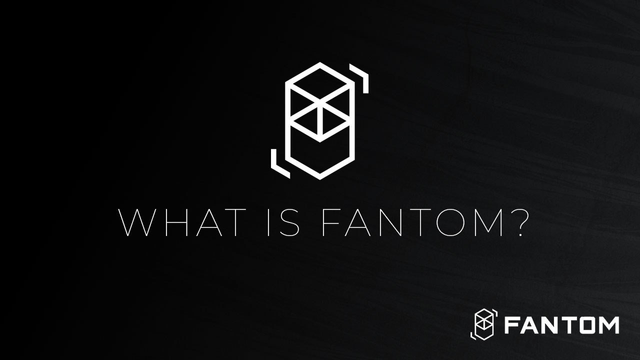
What is Fantom?
Fantom is a new Smart Contract Platform that was developed and designed based on Directed Acrylic Graph (DAG) model in order to address the persisting problems of scalability of existing blockchain technologies.
Let's Discuss the Fantom Consensus Algorithm
A new consensus which was developed as an improvement to existing DAG-based protocols was implemented by Fantom, and this is done with the intention of creating a unique platform that bring about an improvement in the scalability and versatility of existing DAGs, so as to provide solutions to the problems of existing blockchains.

The Fantom platform is powered by a unique technology called OPERA Chain. This OPERA Chain is the technology that houses the Fantom consensus algorithm which is known as "Lachesis Consensus Algorithm". Lachesis Consensus algorithm was developed with the intention to help bring about significant improvement in the performance and security of the Fantom blockchain using DAG-based distributed ledger technologies. The Lachesis Consensus Algorithm works similarly to a Byzantine Fault Tolerant (BFT) technology that assures to give a result that has similar level of consensus as existing blockchains.
The Presence of LCA go a long way to prevent the occurrence of attacks caused by node failure. It also help the Fantom platform to process high transactions upto to 300,000 transactions per seconds. A cryptographic techniques will be employed by the OPERA Chain to enhance security when communication is done between nodes, and full support will be given to the smart contract via the functional programming language adopted by the OPERA Chain.
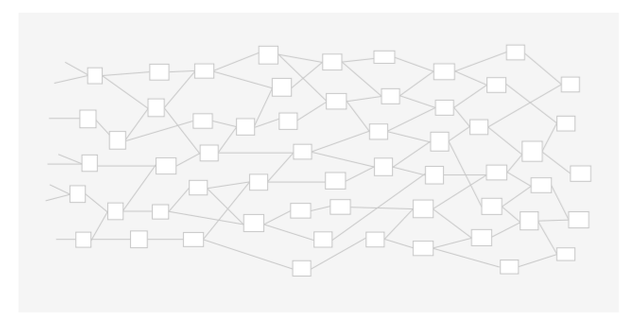
The LCA is developed with the intention that it form a Lachesis DAG which operate based on the Lachesis Protocol. LCA is built on top of the Lachesis graph and it consist of some components which includes Events, Clothos, Atropos, and the Main Chain.
How Lachesis Consensus Algorithm Works
The Lachesis technology was developed with the intention that it helps in the achievement of high performance and secure data storage. The creation of all events blocks from nodes can be done at a time, in any order, without waiting for each other, and each of those event blocks consists of a series of transactions which include remittance, payment, story, reputation, smart contract and rewards. A connection is formed between the new event block and the parent block.
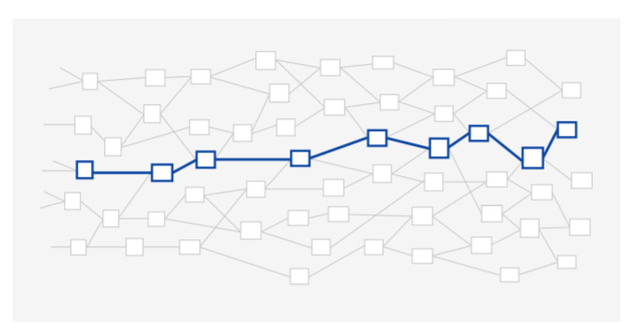
There is a chain that forms its connection through set blocks and thus chain is referred to as Main Chain. The Main Chain is a series of event blocks capable of validating event blocks that are created over a period of time. When there is need for the LCA to provide solutions to various problems such as malicious attacks and double spending issues, incorrect event blocks are generated intentionally while the maintenance is being done to the Main Chain. There also exist the Atropos which is located at the heart of the Main Chain.
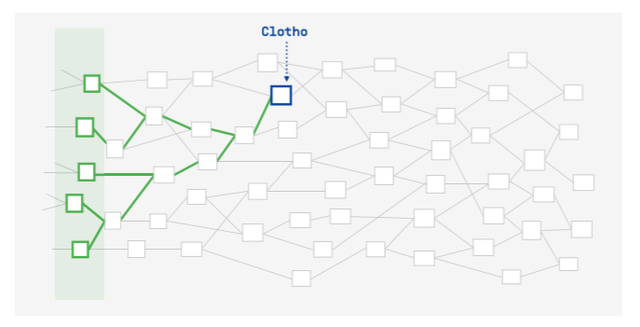
There exist the Clotho in the Lachesis DAG, which has large connection with a series of event blocks. They also have the Atropos event blocks which is classified to be a subset of the Clotho event blocks that assist in giving out information for the connection of existing Main Chain event and it also facilitate the creation of a new Main Chain.
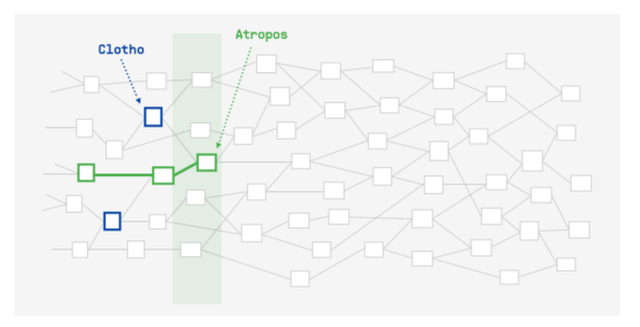
The determination of the order of unordered event block is brought into fulfillment immediately the Atropos is determined and the creation of the Main Chain is completed. The exact time which it will take the consensus of each event block to be completed can also be determined based on an information of the event block connection gotten from the Atropos.
Viewpoint is determined by using the Atropos timestamp if there is the same consensus time in two event blocks. The transaction order of a particular event block is determined by the point-in-time value of that event block.
Key Features and Benefits of Fantom Consensus
Improved Scalability
Real-time Transactions
Data Sharing with Low Cost
Low Energy Consumption
Shorter Processing Time
Final Thoughts
The Consensus Algorithm adopted by the Fantom Platform known as Lachesis Consensus Algorithm has proved to be fully effective and highly efficient to help solve the problems of existing distributed ledger technologies. The unique features and advanced technology behind this development is a spot on for various industries to want to adopt blockchain technology for the betterment of their products and services.
For More Information
Fantom Website
Fantom Whitepaper
Fantom Medium
Fantom DeFi Modulus
